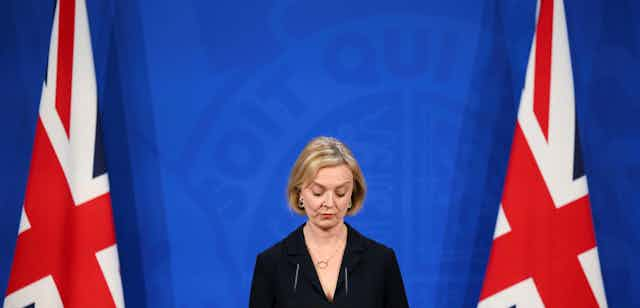The Casino de Montbenon in Lausanne, Switzerland would make a perfect setting for a James Bond film. Located in magnificent gardens and overlooking Lake Geneva and the Alps, criminals and villains could make their entry or escape by motorboat or helicopter. The building itself is as beautiful as it is ornate, with the slight twist that it has never actually housed a gaming room.
As I sat recently in its vast dining room I could not help but feel as if a certain story was unfolding around me – no ropes suddenly descending from the ceiling or gun shots echoing across the room – but the ulterior motive for inviting me to such an impressive arena suddenly becoming clear.
As we sat in a secluded corner of the restaurant the conversation suddenly died away and my host lent forward slowly and said, “tell me this Matthew – and I hope you won’t mind me asking – but when we watch what’s happening in the United Kingdom we cannot help but think, ‘What the fuck is going on?’ Can you please explain?”
It’s surely too dramatic to suggest that the restaurant fell into a bowed silence but there was certainly a long pause as my European friends and colleagues waited in deep anticipation for my answer.
That answer, at the time, was weak, fumbled and incoherent.
Some might say it was therefore a perfect reflection of the state of British politics.
But the current chaos and confusion, treachery and turmoil demands a more honest and considered response. Here, then, is a second attempt to respond to what we might with Bond-like verve label “the Montbenon question”.

First and foremost, what is going on is not just about Liz Truss. Her premiership – and the fact that she was ever handed the keys to No.10 – is symptomatic of a far deeper malady of British politics: a lack of any coherent national vision. A political party or leader without a clear vision of what they want to achieve, why they want to achieve it and how they intend to achieve it is unlikely to enjoy the taste of power for very long.
If a core vision has existed in British politics during the past decade then it was wrapped up in the fairy tales of Brexit. A political vacuum has been the result.
After years spent either pushing for Brexit or seeking to avert it, the British political elite have no vision for the UK’s future after leaving the EU or how to carve out a meaningful role in the world.
Worse still, now the country is on the other side of Brexit, it finds itself in a world that is, as Putin’s invasion of Ukraine has shown, almost defined by volatility, uncertainty, complexity and ambiguity. These are risks that demand close friends and strategic alliances; not rigidity, closed thinking and empty rhetoric.
Political exhaustion
The really significant dimension of British politics today is not that the Conservative government is in disarray – incumbency effects tend to weigh heavily on any party after a while – but that the official opposition is also so weak.
Recent opinion polls may well suggest that the Labour party has opened up a big lead on the Conservative party but my strong sense is that this is fuelled by (negative) disaffection with the Conservatives rather than positive affection for the fresh vision offered by Labour. Survey evidence reveals that the number of people who answer “yes” to the question “does the Labour Party have a clear sense of purpose?” has fallen from 65% in July 2019 to around just 40% today.

The Conservatives are not the only party struggling. The party system itself is flatlining.
In the past when a governing party ran out of steam, when its vision had been exhausted, the pendulum of party politics would swing and “the other lot” would get a chance to inject some fresh ideas. But if we are brutally honest, British politics appears to be the terrain of two (and-a-half) weak and tired parties, sustained only by the existence of a disproportional electoral system.
It may be that what is really going on is that long-standing systemic and structural weaknesses in the governance of the United Kingdom are simply becoming more obvious. British politics is, to some extent, imploding because the principles and processes through which it “does” politics are simply out of alignment with the needs and demands of an increasingly diverse, forward-looking population.
The British political culture and the institutions and processes that sustain it remain elitist. This reflects their pre-democratic origins, but the tribal tendencies and aggressive adversarial look increasingly anachronistic. The “yah-boo” politics of Westminster are simply embarrassing. There is far too much shouting and not enough listening. It’s playground politics of the most pathetic kind.
The fact that the prime minister and her (now former) chancellor were able to announce such a strident package of policies in what they called a “mini-budget”, sidestepping formal scrutiny and essentially “flying blind” (as the governor of the Bank of England described it) with the nation’s economy reveals the nub of the problem.
Power is far too centralised, the rules of the game far too opaque. While the government paddles backwards and the opposition heckles from the sidelines what’s still missing is any sense of a positive vision for the future. A vision, for example, that might look beyond the current cost of living crisis and that redefines the climate change challenge as a positive opportunity to invest and innovate for future generations.
My sense is that the crisis in British politics that stimulated the Montbenon question shows no signs of abating. It may well be, if we step right back, the faltering steps of an ancien regime in urgent need of modernisation and renewal if any sense of governing competence, public trust and global credibility is to be restored.


